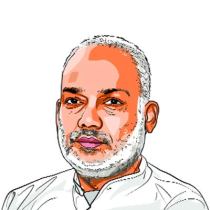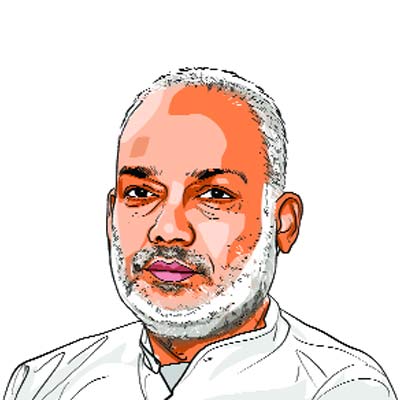Building A Dalit Consensus
Whether on reforms or nomenclature, voices from the community must be heard.

More recently, the judgment diluting the landmark Prevention of Atrocities Act, 1989, led to a further intensification of divisive tendencies. It was the timely intervention of the government through an ordinance that saved the day. (Illustration by C R Sasikumar)
A public debate was sparked recently after the Union Ministry of Information and Broadcasting issued an advisory against the use of the term “Dalit” and suggested “Scheduled Caste” instead. Being from the community and having devoted my entire academic and political life to social justice, I had misgivings regarding this unanticipated etymological intervention, instigated by a decision of the Nagpur bench of the Bombay High Court.
Nomenclature usually plays a crucial role in social and political movements. It helps create identities. Identity creates institutions of unity and, at times, cleavages. From the pre-Independence usage of the term “Depressed Classes” to “Harijan” and now Dalit, we have seen terms evolve and naturally fade away in due course.
Judicial overreach in matters related to social justice has not had much support from the Dalit community for obvious reasons. Take the 2006 intervention in the Nagaraj case, where it laid the responsibility to quantify the backwardness of the community and the inadequacy of representation on the states. If I am not mistaken, there has not been a single foreign secretary or cabinet secretary from the community. Today, only one Dalit holds a secretary-level position.
More recently, the judgment diluting the landmark Prevention of Atrocities Act, 1989, led to a further intensification of divisive tendencies. It was the timely intervention of the government through an ordinance that saved the day.
And now the direction on the usage of the term, “Dalit”. The question here is more fundamental in nature. How can we expect the judiciary to be sensitive to the issues of the marginalised if it does not reflect social realities and diversity? After the retirement of Justice K G Balakrishnan in 2010, no Dalit judge has reached the Supreme Court. There is not a single Dalit chief justice in the 24 high courts. There is no representation of the disadvantaged where her future is judged.
The community must find voice at the top of the power pyramid. A more robust democratic engagement is important for this process. There is an ongoing churn in the community. The fruits of reservations have successfully established a well-settled section, howsoever minuscule, within the Dalit community. Turning the searchlight inwards is also important if we have to make ourselves heard. We need to have some concern and imagination for our brethren who are left behind because the benefits of reservation have not reached them. Can we re-imagine the traditional contours of social justice?
There are places where we were under-represented before but as a community, we have made some steadfast progress like in the world of business and industry. Milind Kamble, founder of the Dalit Indian Chambers of Commerce and Industry says, “we need connections and not concessions”. There is a new generation of Dalit youth who are aspiring beyond the conventional tools of empowerment in the Constitution. The Centre has initiated multiple projects with the aim of creating a conducive ecosystem for Dalit entrepreneurship. New avenues of empowerment must be explored as opportunities in government sectors are gradually evaporating.
As a community, we must learn to confront the questions which might be unpalatable for some. The debate on reforms — whether about reservation or nomenclature — must contain voices from the community. All stakeholders and thought-leaders from the community must articulate their perspectives and come together to create a positive and a more inclusive “New Dalit Consensus”.
The writer is a professor, former Union minister and MLC in Bihar.
For all the latest Opinion News, download Indian Express App
More From Sanjay Paswan
- The Pursuit Of TruthJayaprakash Narayan was a true inheritor of Gandhi’s legacy...
- A New Dalit AgendaThe politics of outrage and patronage has run its course..
- Vote Bank To Thought BankDalit empowerment could emerge through consensus not conflict, dialogue not dominance...








































No hay comentarios:
Publicar un comentario